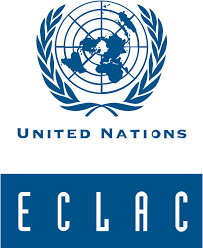
Countries with robust science-technology-innovation-
Using this ongoing energy transition as an example, particularly within the electricity sector, ECLAC Caribbean developed a study that assessed the contribution of STI to sustainable development in the subregion. Titled “Assessing the importance of Science, Technology, and Innovation to support Sustainable Development in the Caribbean: The case of energy transition”, the study shows that more emphasis needs to be given to the role of STI in advancing growth and development within the subregion.
In this context, ECLAC Caribbean on October 19, convened an expert group meeting (EGM) to explore the subject. To frame the discussion, the meeting assessed the research, which sought to analyze STI’s importance in achieving sustainable development by identifying lessons from the energy transition, with a focus on the electricity sector. The EGM provided a virtual space to review the main findings and recommendations of the study, which shows that more emphasis needs to be given to the role of STI in advancing growth and development within the subregion. It also provided recommendations for raising the profile of STI in Caribbean small island developing states (SIDS).
Historically, efforts to promote the institutional adoption of STI in the Caribbean go back at least 50 years, with the development of several mechanisms for cooperation in science and technology. More recent initiatives include the creation of thematic ministries and specialized institutions.
Despite such attempts, progress within national institutional frameworks, in most Caribbean SIDS, seems to have stalled in recent years. As a result, the subregion is behind the rest of the world in incorporating STI as a key pillar in national sustainable development priorities.
The findings, conclusions, and recommendations discussed during the EGM are expected to assist policymakers in repositioning the subregion, through entrenching STI into national and regional policies and frameworks.
Delivering the opening remarks at the EGM was ECLAC Caribbean’s Deputy Director, Dillon Alleyne, who informed that there is a shared perception among policymakers and experts in the subregion that STI needs to be further supported and advanced by governments in close partnership and dialogue with the private sector, academia, civil society organizations, and the general public.
He expressed hope that the draft study will ease countries’ transition towards the increased use of renewable energy sources. “Countries within the subregion identified sustainable energy as a priority area during the midterm review of the SAMOA Pathway. Therefore, we believe that the advancement of STI in the energy sector is paramount to supporting the development, adaptation, and implementation of renewable energy technologies in the subregion.”
Alleyne noted that the study sought to explore lessons and identify good practices from the energy transition to advance STI within the subregion through the development and implementation of legislation, policies, and partnerships that can be conducive of innovations in other critical economic sectors and development areas. He said: “Such efforts will allow for the early adoption, adaptation, production, and the eventual export of new emerging technologies and support sustainable development priorities in the Caribbean.”
Participants at the EGM included regional and national experts from academia, practitioners, inter-governmental organisations, private sector, and technocrats in the fields of Renewable Energy and Science, Technology, and Innovation.

Disclaimer: The comments posted do not necessarily reflect the views of DominicaNewsOnline.com and its parent company or any individual staff member. All comments are posted subject to approval by DominicaNewsOnline.com. We never censor based on political or ideological points of view, but we do try to maintain a sensible balance between free speech and responsible moderating.
We will delete comments that:
See our full comment/user policy/agreement.